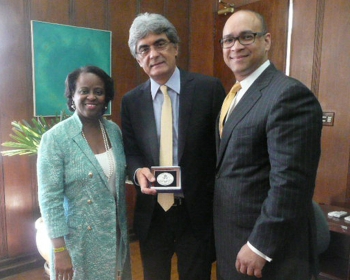ITA: Metro Exports Driving Economic Growth
Ed. note: Cross-posted from ITA's Tradeology blog by Michael Masserman and Ashley Zuelke of the Office of Export Policy, Promotion & Strategy
Here’s a fact: the 100 largest metro areas in our country make up just 12 percent of land area—but they make up 65 percent of our population and 75 percent of our nation’s GDP. So when it comes to export growth, it should come as no surprise that metro areas are leading the way.
What may surprise you, is that 13 smaller metropolitan areas across the U.S.—from Asheville, N.C., to Green Bay, Wisc., to Yakima, Wash.— for the first time joined the club of metropolitan markets that exported more than $1 billion in merchandise to the world. These metro areas exported U.S. goods such as machinery, transportation equipment, and computer and electronic products which are in great demand all over the world.
The achievement of these thirteen metropolitan areas and recently released national data for 2011 metropolitan exports confirms the historic progress we are making toward reaching the President’s National Export Initiative (NEI) goal of doubling U.S. exports by the end of 2014.










